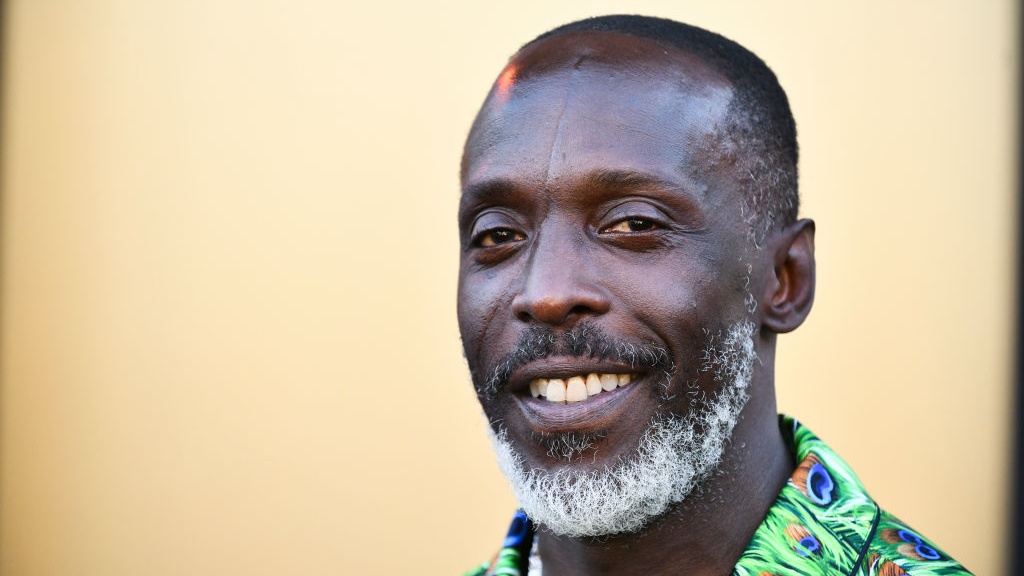As fans continue to mourn the unexpected death of Michael K. Williams last week, the anecdotes are plentiful. But few acknowledge his position as a de facto icon for Black queer people.
Williams rose to small-screen prominence for his portrayal of stick-up man Omar Little on HBO's The Wire. The character was known as a brutal, shotgun carrying thief who openly loved his male partner and took his grandma to church. Of course, gay Black male characters had made appearances on television before, but none had embodied the raw masculinity or street credibility that Williams’s character represented. Little wasn’t a diversity hire in a world of Baltimore gangsters, he was the boogeyman they feared.
“Michael K. Williams was a god damn genius, a black queer icon who challenged the ideas of black masculinity at a time when it wasn't easy and a truly great dude. A huge loss. Somebody tell God, Omar coming,'' wrote Oscar-winning director Travon Free.
Michael K. Williams was a god damn genius, a black queer icon who challenged the ideas of black masculinity at a time when it wasn't easy and a truly great dude. A huge loss.
Somebody tell God, Omar coming.#RIPMichaelKWilliams
pic.twitter.com/Ch4iEoCVvS— Travon Free (@Travon) September 6, 2021
Williams went on to portray other gay characters, and notably offered a humanity and sincerity to the roles few actors could. He was Leonard Pine in Sundance TV’s Hap and Leonard, a quick-tempered Vietnam veteran who despised homophobia and racism and loved gaudy hats. The show was canceled three seasons after its 2016 debut, but not before becoming Sundance TV’s highest-rated original series in the network’s history, according to Deadline.
In 2017, he starred as HIV-positive activist Ken Jones in the eight part miniseries When We Rise.
His varied portrayals of Black queerness was a testament to his fearlessness as an artist and a Black man, dissecting and putting together roles and subjects still considered taboo in the Black community. The Prophets author Robert Jones Jr., also known by his internet moniker Son of Baldwin, released a heartfelt letter that touched on Williams’s impact.
“Michael K. Williams’s death cuts incredibly deeply because what we witnessed in him was an artist who was getting as close to liberation as we’ve ever seen a Black man get — only to have it snatched away the moment it was within reach,” Jones further said in a statement.
From #TheWire to #HapandLeonard to his most recent vulnerable turn in #LovecraftCountry, Michael K. Williams singlehandedly moved the needle for Black queer masculinity on screen. His death is a truly staggering loss. pic.twitter.com/mn3upn4h2H
— Dan Hassler-Forest (@DanHF) September 6, 2021
I was personally inspired by Williams long before I even knew who he was or before he became a Hollywood star. As a child who loved music but didn’t have cable, the infrequent late-night video box programming was always a treat. House classic “100% Pure Love” by Crystal Waters was a consistent way to get the living room dancing. It was only recently that most of us discovered Williams had choreographed the video. He can be seen as the middle lead dancer throughout. Williams took to The Queen Latifah Show to talk about his experience as a dancer for the likes of Madonna and Ginuwine, and how Janet Jackson inspired him.
my favorite interview with michael k. williams was on latifah's show (they've been friends since they were 17) and he discussed how janet jackson's "rhythm nation" video made him get into showbiz, then latifah pulled a clip from his days as a backup dancer pic.twitter.com/fwvmJaJcSQ
— Marlow Stern (@MarlowNYC) September 6, 2021
Though he didn't identify as gay, as a young man growing up in the Flatbush projects he found a home in the underground ballroom scene of New York City, where he "relished the sheer liberty of carousing around a space unencumbered,” The New York Times reports. His ballroom and dance background came full circle with his recent portrayal of Montrose Freeman in Black horror anthology Lovecraft Country. Freeman, an abusive father and grieving widower who also happens to be gay, is allowed a brief moment of joy in an episode that finds him openly dancing with his lover at a drag ball and being lifted up (literally) by the community.
Mike Ebony walking Best Dressed pic.twitter.com/wP1QYEEFkm
— TENz Magazine (@TenzMagazine) September 6, 2021
A man of many talents, faces and stories, Williams will be deeply missed by all who were touched by his work and his tenacity to humanize our community's most complicated and underrepresented characters.
